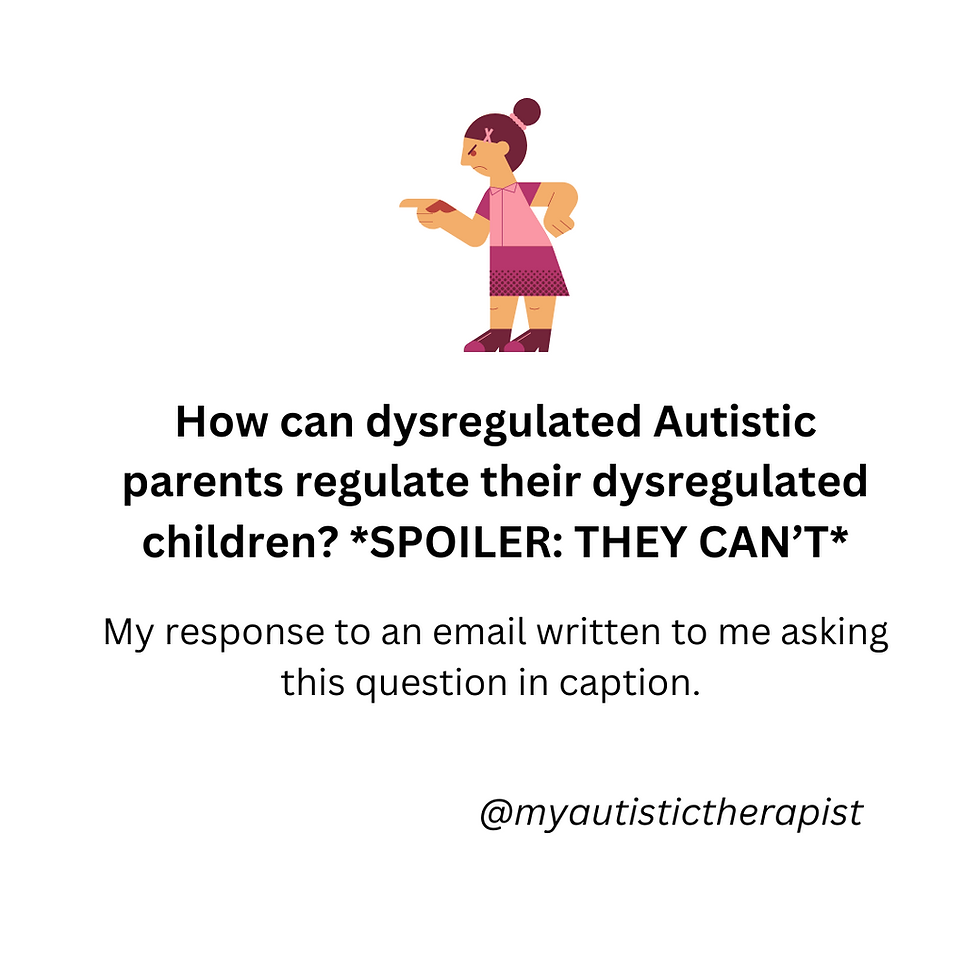Dysregulated Autistic Parents
- Danielle Aubin, LCSW

- Jun 6, 2024
- 2 min read

Hello _____,
I appreciate you reaching out to me and your question. It really is THE question, a question that I am helping parents with probably most days, not to mention figuring out for myself. I believe the saying that "you can't pour from an empty cup" makes sense within this context since how can a parent help a child regulate if they dysregulated themselves? The reality is that they cannot. We cannot regulate when we are dysregulated, especially if we do not know how to attend to our dysregulation. An Autistic parent will become dysregulated, probably a lot. It is just par for the course. Children can be overwhelming, not to mention neurodivergent children which Autistic parents generally have (not always). So, if I were to break this down to make it simple:
1. Autistic parents will become dysregulated, overstimulated, and overwhelmed, especially if they have limited support which, due to the social/economic/etc effects of autism, Autistic parents most likely have less access to support than allistic parents
2. If we acknowledge the fact that Autistic parents will be dysregulated often, we need to focus on how to support Autistic parents in filling up their own cups so that they have something to pour from to help their children. So that means that Autistic parents must find ways to meet their own needs such as stimming, time spent with special interests, connecting with other autistic folks to decrease isolation, etc. These activities are not a luxury and are necessary.
3. If Autistic parents have prioritized meeting their own needs and have learned how to manage their dysregulation via regulation techniques, etc, then the parents will be able to have the "spoons" to support their children with their dysregulation. A regulated Autistic parent can be an incredibly supportive parent for their dysregulated children because they have the skills and bandwidth to teach and support their child with learning how to regulate.
4. If the children are a source of dysregulation for the parents, then they need to continue to support themselves with accessing regulating activities to prevent and address ongoing sources of dysregulation. Also accommodations such as childcare, therapy, low demand lifestyle, etc can all be helpful/supportive.
I hope that answers your question.
Sincerely,
Danielle
.png)



Comments